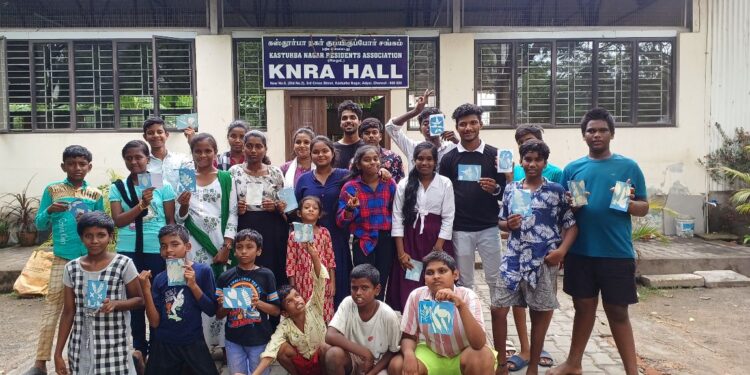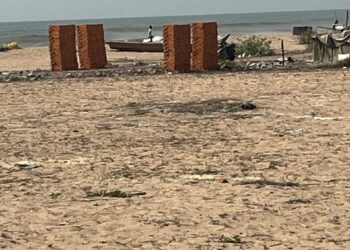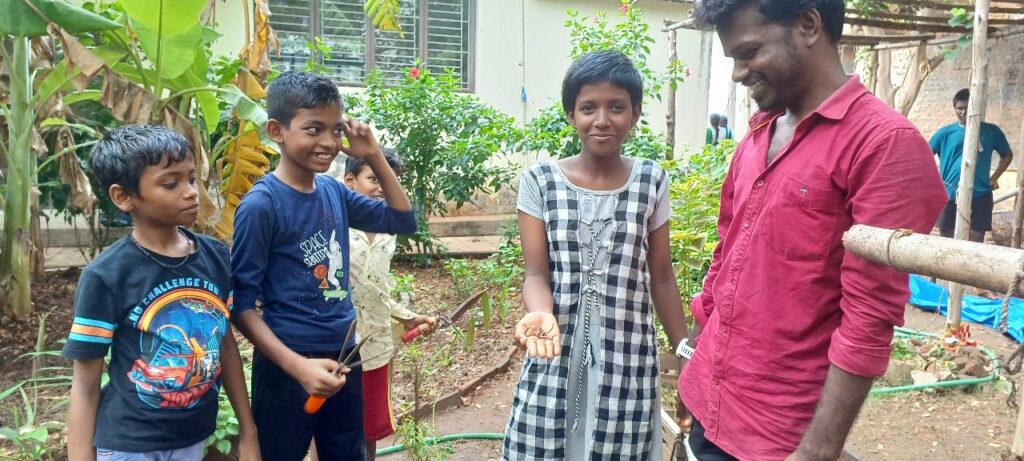
Ishwarya and her friends were intrigued seeing the earthworms at the millet sowing bed at the community garden at Kasturba Nagar Residents’ Association Hall. “Place the earthworms on my palm,” she urged her friend Jeeva and signalled to me for a quick click. Just as she heard the click, she dropped the earthworms, but her eyes twinkled in excitement.
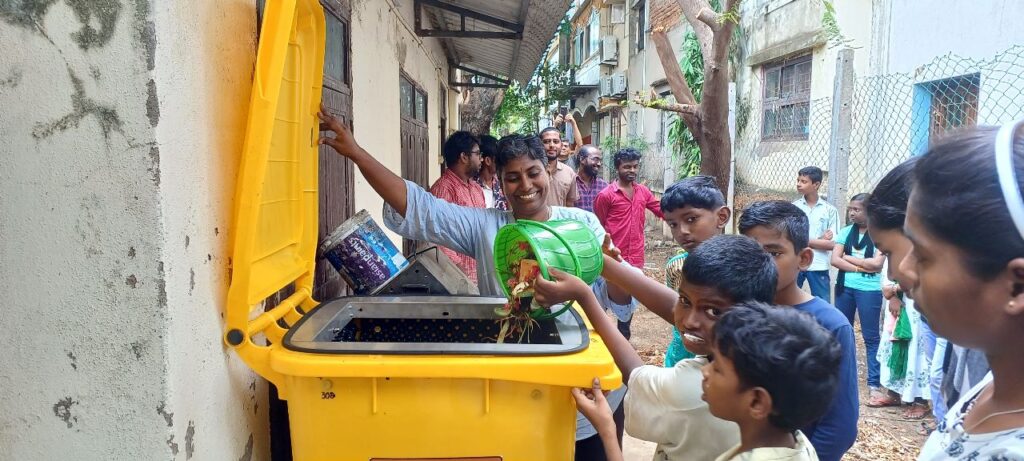
Ishwarya and her friends had come to the hall on May 3 for the event ‘Caring for the Urban Environment’, coordinated by Samyukta Kannan, to understand and enjoy nature. This camp saw participation from nearly 20 lesser-privileged children associated with NGO Pudiyador, who excitedly participated in the various activities planned during the event.
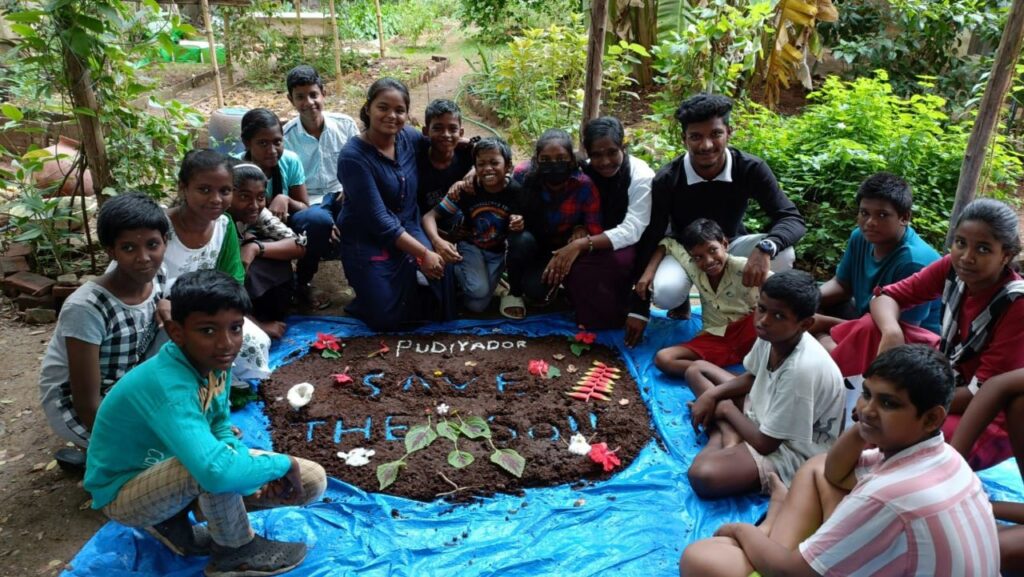
The event started with an interactive session by P.Saranya, a solid waste management (SWM) volunteer, who explained about SWM – different types of waste, how to segregate, why to segregate, and composting. They were also introduced to the various alternatives to plastics and disposable items, and especially sanitary hygiene.
After a demonstration on compost making, the children made art with it, under the guidance of Saraswathi Shanmugasundaram. Continuing with the art, the children were introduced to cyanotype printing by Seetha Gopalakrishnan, nature educator, Care Earth Trust. The magic of colours and the prints of the different shapes of leaves on postcards captivated the young minds. “We have only seen xerox and printouts of pictures, but never knew the magic of paint and sunlight. We are having a lot of fun!” remarked Jeeva. “The aim of this session is for children to look around and recognise various shapes in nature – sizes and shapes of leaves, flowers and seeds etc.,” explained Sumyukta.
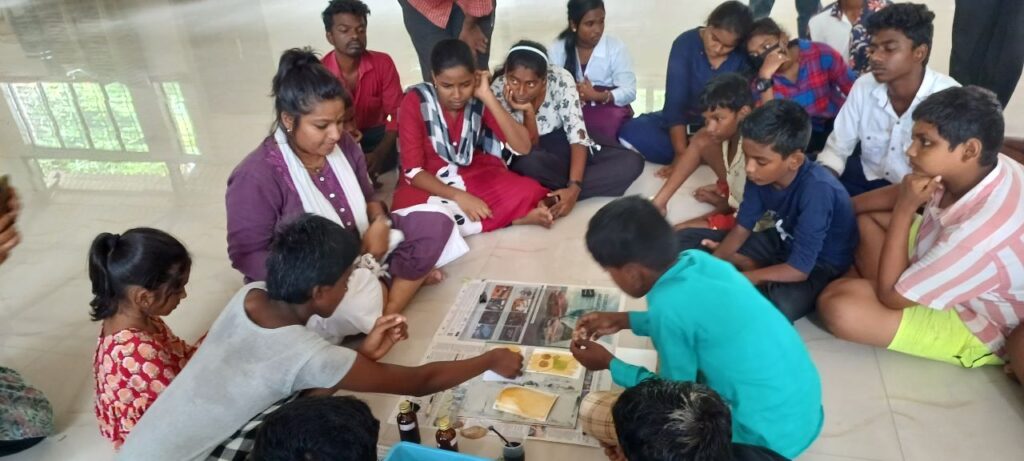
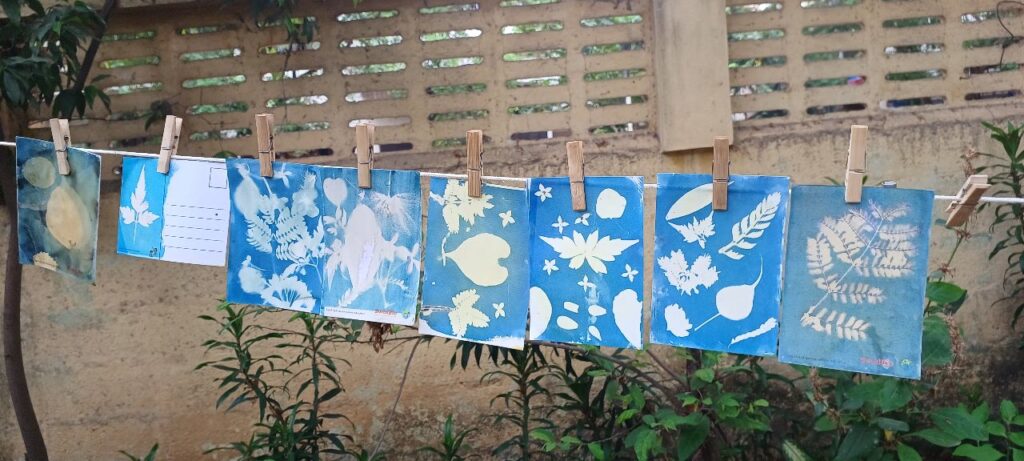
The children also got an opportunity to interact with N.S.Krishnamoorthi, Founder of Prems Graama Bhojanam, who emphasised that children follow a healthy lifestyle of a balanced diet, exercise and empathy. “You must strive to be ‘vallavan’ and ‘nallavan’,” he said.
As the day came to an end, the children were back in the garden performing various activities like spreading compost, spraying insecticide, digging the ground for sowing and sowing millets. As the session came to an end, the children grabbed their cyanotype postcards and recollected their learnings. “Till now we have only been taught about waste segregation, but it was today, we understood why and how to do it,” said Jeeva. “We were impressed by the alternatives available to plastics, especially for menstrual products,” said Priya. “I missed the blooming of the lotuses in the gardens. I want to visit this garden again and look at more plants. I also hope to have a garden in my native village one day,” said Manigandan.
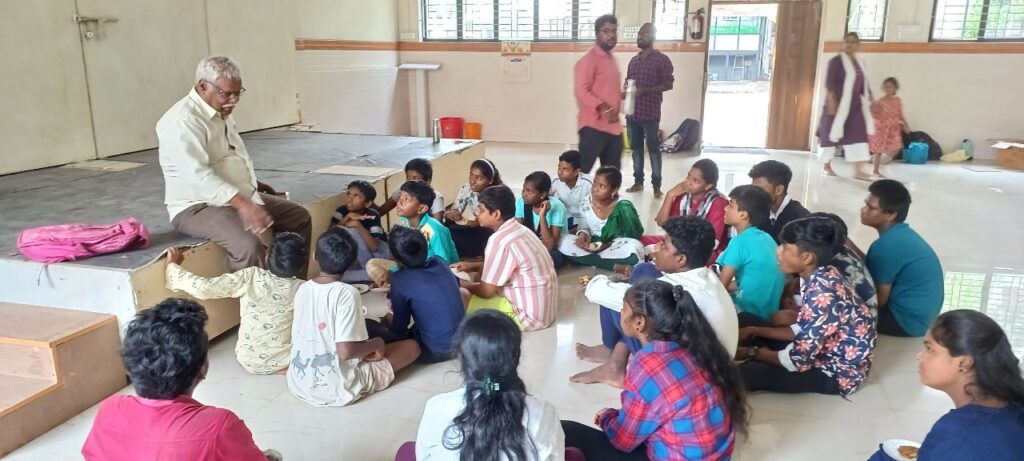
Speaking about the event, Samyukta explained, “The idea behind organising the event was to inculcate in youngsters a sensitivity to the urban environment and show them the various ways a community can work together to care for their surroundings. We hope these young children can become leaders of change in their own neighbourhood.”
Samyukta has been the brains and muscle behind the community garden at the Hall premises. A wide variety of indigenous species of plants takes one back to our childhood when we revelled in the fragrance and colours of plants like Nagamalli and jasmine apart from the kitchen garden comprising of bananas, gonkura, manathakkali, purple yam, arrowroot and many more. For the children, seeing plants like cotton provided a unique opportunity to understand the journey of the flower becoming a piece of cloth.
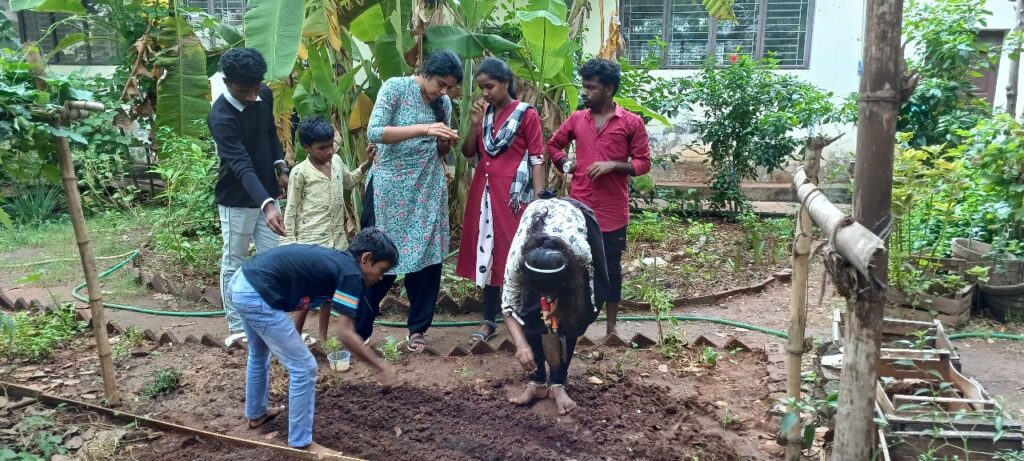
Explaining the idea behind the community garden, Samyukta said, “While many urban public spaces are there for us to use, community gardens are a space where citizens can work together to proactively develop and maintain it. This activity brings together people from different walks of life to learn how to grow food, build community, care for local ecology and it also offers many physical and mental health benefits.”
Organisers hope that camps like this encourage the children to be positive change bearers in the society. Indeed, children are the future of tomorrow.
To volunteer and know more about the community garden, contact Samyukta at 98418 16131; Pudiyador can be contacted at 74010 50426.


